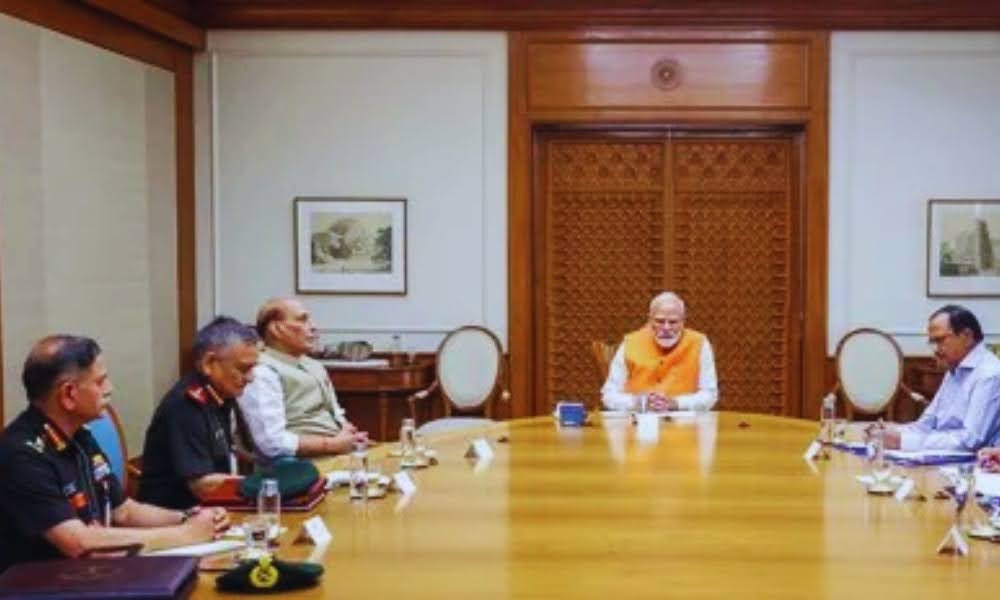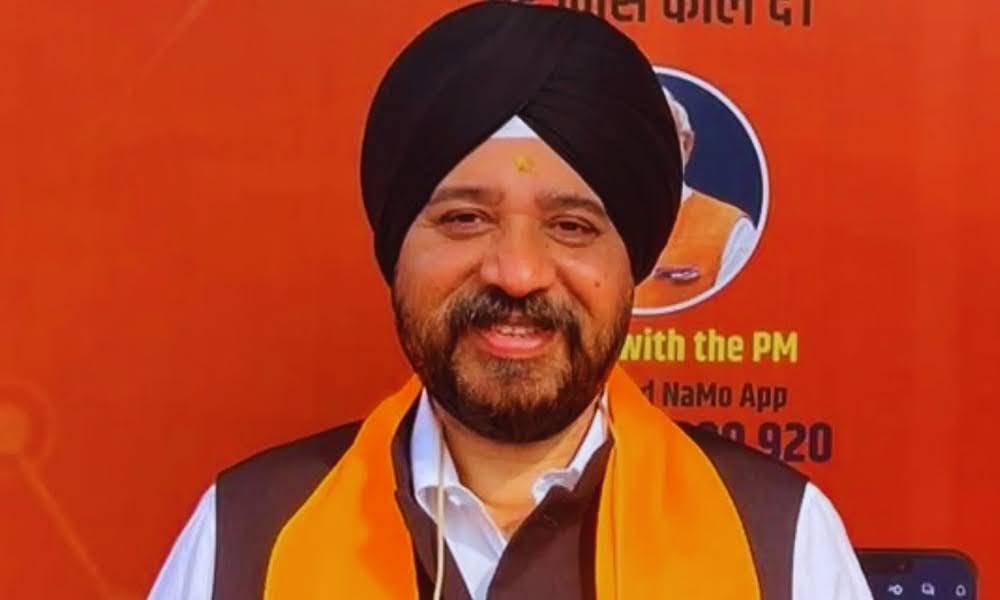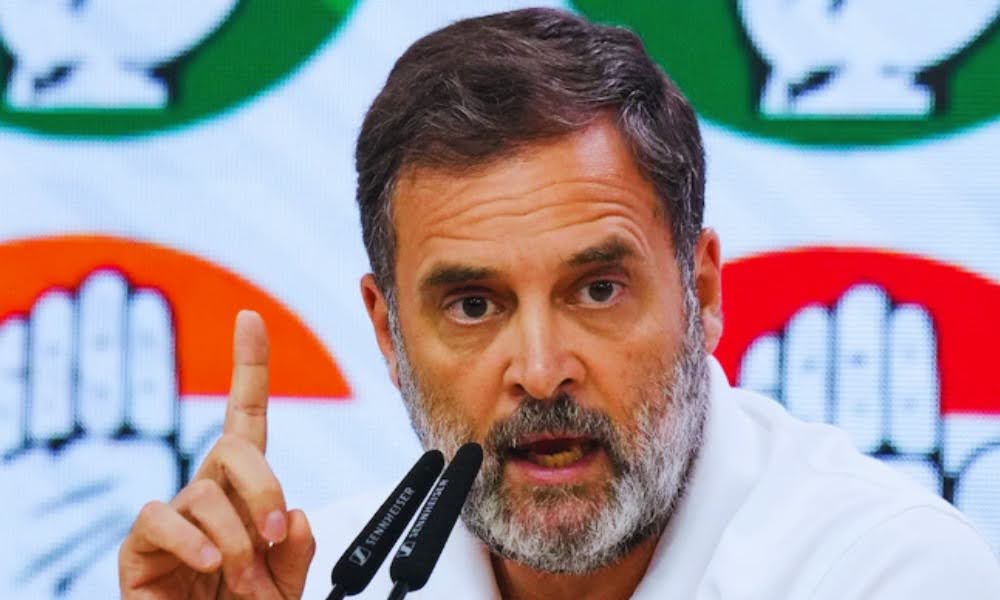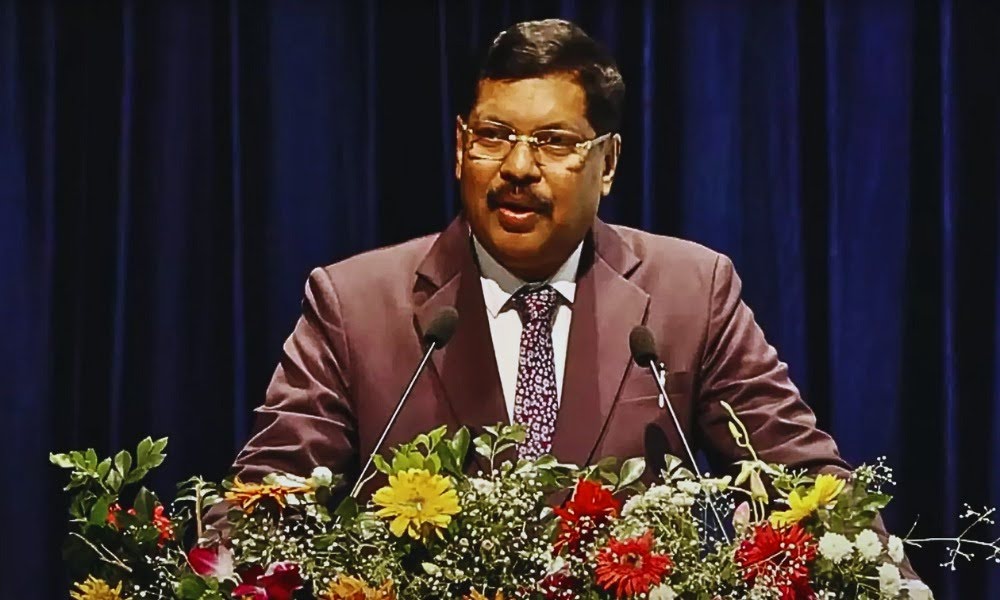PM Modi Vows Decisive Action After Pahalgam Attack, Grants Armed Forces Full Operational Freedom

Prime Minister Narendra Modi has asserted that it is India’s “national resolve to deal a crushing blow to terrorism,” following the terror attack in Pahalgam that resulted in the deaths of 26 individuals.
He conveyed his complete confidence in the Indian armed forces and assured them of “complete operational freedom to decide on the mode, targets and timing” of India’s response.
This statement reportedly came during a high-level meeting held at the Prime Minister’s residence on Tuesday.
Present at the meeting were Defence Minister Rajnath Singh, National Security Advisor (NSA) Ajit Doval, Chief of Defence Staff (CDS) General Anil Chauhan, Army Chief General Upendra Dwivedi, Air Force Chief Air Marshal A.P. Singh, and Navy Chief Admiral Dinesh Tripathi.
Strategic Meeting Signals Decisive Response
The meeting occurred a day before Prime Minister Modi is set to preside over a session of the Cabinet Committee on Security, marking the second such discussion after the Pahalgam attack.
In the immediate aftermath, India had already taken stern diplomatic actions against Pakistan, believed to be linked to the attack.
These measures included the suspension of visas for Pakistani nationals and the halting of the Indus Waters Treaty.
Government sources indicated that Modi’s interaction with top military and security officials signals potential military action being considered in addition to the existing diplomatic responses.
“Complete Confidence” in Armed Forces
A government source stated, “Prime Minister Modi expressed complete faith and confidence in the professional abilities of the Indian Armed Forces.”
The source added, “He [Modi] said they [the armed forces] have complete operational freedom to decide on the mode, targets and timing of our response.”
Meanwhile, defence sources confirmed that intelligence-based counter-terror operations were ongoing in Kashmir. At the same time, Cease-Fire Violations (CFVs) were reported for the fifth consecutive night along the Line of Control (LoC).
Provocations Along LoC Continue
According to the Army, “During the night of April 28-29, Pakistan Army resorted to unprovoked small arms firing across the Line of Control in areas opposite Kupwara and Baramulla districts, as well as the Akhnoor sector.”
The statement added, “Indian Army responded in a measured and effective manner to the provocation.”
The continuation of such provocations further intensifies the already heightened tensions along the LoC.
Nationwide Vigil in Place
In parallel developments, Home Secretary Govind Mohan chaired a security meeting attended by Director Generals of the Border Security Force, Assam Rifles, and National Security Guard.
Senior officials from the Central Reserve Police Force and Central Industrial Security Force were also present.
Although the agenda of the meeting remained undisclosed, a senior official noted that security forces were instructed to stay on high alert and maintain strict vigilance along the borders.
India Poised for “Crushing Blow” to Terrorism
During the emergency meeting, Prime Minister Modi’s message was clear. He affirmed full support for the armed forces to respond as they see fit and reiterated the nation’s resolve to strike terrorism hard.
The meeting was described as “extraordinary in urgency and nature,” underscoring the gravity of the situation following the attack in Pahalgam, where most of the victims were tourists.
Sources revealed that the top brass reviewed intelligence inputs and discussed actionable military and strategic responses aimed at dismantling terror infrastructure across the border.
Pakistan-based terror outfits like Lashkar-e-Taiba have come under intense scrutiny, and a decisive retaliation strategy is reportedly in the works.
Military and Surveillance Preparedness
Following the attack, India has heightened its military alertness, especially along the LoC and the international border.
Surveillance using drones, satellite imagery, and electronic intercepts has been intensified to monitor terror launchpads in Pakistan-occupied Kashmir (PoK).
India’s response is also expected to involve high-precision operations aimed at disrupting terror networks and their logistical support systems.
Diplomatic Actions Already Underway
Even before the anticipated military response, the Indian government had acted by putting the Indus Waters Treaty in abeyance and cancelling short-term visas granted to Pakistani nationals.
Prime Minister Modi had earlier vowed to chase down every terrorist and their supporters “to the ends of the earth.”
Tuesday’s meeting is now being viewed as a significant step in that direction, potentially paving the way for a forceful and calculated military reaction.
Nation Awaits Next Move
As the capital remains gripped in tense anticipation, Delhi’s political and military corridors are preparing for what could be a defining moment in India’s counter-terrorism stance.
With the perpetrators of the Pahalgam massacre under the radar, India appears ready for a decisive blow that could reshape its security landscape.







